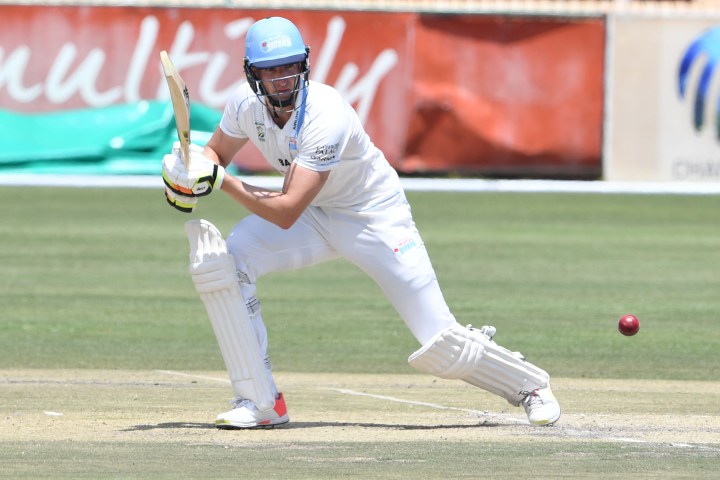TEST CRICKET
CSA could have avoided sending a callow Proteas squad to New Zealand despite issues with the international calendar

Cricket South Africa’s decision to send a sub-par squad to New Zealand for a two-match Test series later this month, prioritising the domestic SA20 tournament, bodes ill for the future of bilateral cricket.
The recently concluded South Africa versus India Test series – all two matches of it – made compelling viewing and led to much lamenting that there wasn’t a third and deciding Test. It ended 1-1.
India bounced back from an innings and 32-run defeat at Centurion in the first Test to win the second comfortably, by seven wickets. India tore through the Proteas’ lineup in the first innings at Newlands, dismissing the hosts for 55 to set up ultimate victory.
India lost six wickets in their first innings without scoring a run to ensure the match remained a contest. In all, 23 wickets fell on day one. It wasn’t a great advert for the Newlands pitch, but in a bizarre way, it was a roaring proclamation for Test cricket. Even if it was Test cricket played at warp speed.

Aiden Markram, fresh off a magnificent century against India, won’t tour New Zealand with the Proteas Test squad. Instead, he will turn out for the Sunrisers in SA20. (Photo: Lee Warren/Gallo Images)
On day two, Aiden Markram, ignoring a pitch that contained more demons in it than Dante’s Inferno, scored one of the greatest centuries Newlands has seen during South Africa’s second innings. Only Test cricket could provide these contrasts and this level of drama.
Which is why Cricket South Africa’s (CSA) decision to send a weak team to New Zealand for two Tests in February looks increasingly bad.
It is ridiculous to wish for a third Test against India when CSA isn’t taking a less glamorous away series against New Zealand all that seriously.
Yes, there are significant reasons for the decision to send a Test squad to New Zealand with seven uncapped players, to be captained by the uncapped Neil Brand. But there is no getting away from the fact that this undermines Test cricket. And it comes with some potential problems.
CSA has hinted at being a victim in this situation. It suggested that the decision to send an inferior Test team to New Zealand, while the likes of Markram and Kagiso Rabada play 20-over cricket, was out of its hands.
Well, that’s not entirely accurate. CSA knew the dates of the SA20 – 10 January to 10 February 2024 – as early as March 2023.
Yet, in July 2023, CSA proposed the dates of the Proteas’ New Zealand tour, knowing the SA20 and New Zealand tour would overlap. Something had to give, and it was the Test team that was undermined while the SA20 was given preference.

Premier fast bowler Kagiso Rabada is another experienced player who will miss the tour to NZ in favour of SA20. (Photo: Shaun Roy / Gallo Images)
As part of the SA20 agreement – which, don’t forget, features six IPL owners from India – South Africa’s top players are contractually guaranteed to feature in the tournament. The players can’t be in two places at once.
In yet another twist of irony, players holding national contracts with CSA are legally bound to be available for bilateral (international) cricket. Yet CSA has asked them to break their own contracts with… CSA.
The decision is also in breach of CSA’s memorandum of understanding with the South African Cricketers’ Association (Saca).
And last, the International Cricket Council (ICC) is clear in its agreements with members that international cricket must be given “primacy”. It does not explicitly state that members must select their best team at all times, though, but it is inferred.
CSA’s decision could have massive repercussions for future broadcast and sponsorship deals as well. Considering the Proteas still make up 90% of CSA’s revenue, it’s a dangerous game to play.
SA20 prominent
There are sound reasons for CSA’s decision in one sense – the SA20 is far more lucrative and, frankly, prestigious to CSA than a two-Test tour to New Zealand.
Last year, the inaugural SA20 earned CSA R30-million. It’s not the kind of money that will save cricket in South Africa, but it’s still got a great deal of scope for growth. It should eventually quadruple that revenue for CSA.
But it’s not likely to replace the real revenue driver for cricket, which is bilateral cricket played at home. The recent India tour to South Africa, which is by a huge margin the most lucrative, earned CSA about R1.2-billion in broadcast fees. It would take a lot of SA20s to earn that much.

SA20 commissioner Graeme Smith has done a stellar job of implementing the tournament. (Photo: Ashley Vlotman / Gallo Images)
What the SA20 has achieved though, is bringing prestige and standing to the local game with a global tournament, after the debacle of the Mzansi Super League (MSL) attempts several years ago, which haemorrhaged more than R200-million.
The SA20 is a world-class tournament, featuring many world-class white-ball players, backed by big IPL brands, giving it a toe in the massive Indian market. And it’s not costing CSA a cent, unlike the MSL. In fact, it’s making CSA and players millions. That’s where the real value lies.
Some young South African players have become millionaires overnight thanks to the SA20. And if they perform well, it opens doors to the even more lucrative IPL.
The trade-off is what we’re seeing now, with the upcoming New Zealand tour. The Proteas will suffer occasionally when there is overlap.
It just would’ve been easier to swallow if CSA had been upfront about it, and explained the situation instead of issuing a statement claiming to value Test cricket while sending a callow squad to New Zealand.
Once the CSA Members Council agreed to the SA20 competition during their deliberations back in 2022, there were always going to be consequences for the Proteas. The SA20 takes place in the height of summer, in the sweet spot of the cricketing calendar.
Hardball
This situation might also have been avoided if CSA had been firmer in its dealings with New Zealand Cricket (NZC) and demanded different dates.
CSA stated that they had to play these two Tests against New Zealand at this time because of the Future Tours Programme (FTP). But that’s not quite true.
According to the FTP, these two Tests must be completed in the two-year cycle. There is no mention of specific dates. CSA could have pushed harder against New Zealand to play the Tests at another time.
NZC wanted the Tests to be played now as they have Australia to come after the Proteas’ visit, which happens just before the new Indian Premier League (IPL) season.
NZC were not overly accommodating, which is ironic as South Africa toured there at the height of Covid, despite New Zealand having the most draconian lockdown regulations during the pandemic. That tour earned the NZC much-needed broadcast revenue at a time when the global sporting ecosystem was near collapse.
Bigger battle
All this points to a broader picture of the battle between international cricket – especially Tests – and the explosion of 20-over leagues across the world.
The IPL is set for a second annual tournament in September, further squeezing the calendar.
It’s something that Federation of International Cricketers’ Associations (Fica) and Saca constantly raises. The future of bilateral cricket is at stake if these calendar conflicts are not addressed.
“We’ve highlighted that these issues (clashes between domestic leagues and bilateral cricket) are coming for the best part of a decade and have provided evidence for this to the ICC and national governing bodies, including through our global employment reports,” Fica CEO Tom Moffat said.
‘These issues shouldn’t be a surprise to anyone, including in the big countries.
“While the South Africa example is clear, scheduling overlap between domestic leagues and international cricket is not a new thing, nor is flight of talent away from international cricket.
“That’s because there is no global framework for how bilateral international cricket is scheduled, or how it is going to co-exist with the domestic leagues.
“Following the deregulation of the Future Tours Program in 2014, the biggest three countries, England, Australia and India, play approximately three times more cricket against each other than against everyone else.
“In that context it’s only natural that other countries have looked to diversify their revenue bases, including through leagues.
“There are solutions to these issues if there is global will and compromise, including from the bigger countries. We think those solutions need to revolve around empowering the ICC to lead the game on global game structure and scheduling windows, balancing up global revenue distribution better, and making international cricket more attractive to players if you want to retain them in it.
“Arbitrarily trying to restrict players from playing in leagues and earning a living there, which we’ve seen some national governing bodies try to do, is not the answer.
“The reality is the domestic leagues are by and large owned by the same national governing bodies who also create the international cricket schedule.
“It’s madness for the interplay between the two to not be properly coordinated at global level. This is a structural problem for the game and it shouldn’t just be on the players to solve that.” DM



















 Become an Insider
Become an Insider
” But there is no getting away from the fact that this undermines Test cricket.”
Proteas ‘test’ cricket has already been undermined by India, England and Australia keeping all the goodies for their selfish selves, Craig. We have been sold down the river, particularly by the poms (as usual), and test cricket here is effectively dead. THAT’S the disgrace.
Sending a team like this to NZ is an insult to NZ, and also a huge insult to test cricket. The bottom line of course is money … and the short, cheap excitement of 20 over slogging. Sure, T20 requires specific skills but really, how often can one be excited by 50-ball centuries? And cricketers who want to be millionaires more than sports lovers doing what’s best for the game.. Shame on CSA. A sad day.
Agreed! And it’s not going to draw crowds so revenue will be down. CSA really is useless.
> cricketers who want to be millionaires
don’t begrudge a sportsperson maximising the income that only comes in for such a small section of their adult lives. many more cricketers are able to make a living playing cricket thanks to more money-earning opportunities. a small period to earn… a long life to live.
It is time to let ODI matches go, the calendar is getting too crowded and T20 is far more of interest to the public and a money spinner than the ODI. This could free up more time for Test matches but it does need the Indian, English & Australians to play more against the other Test countries.
The 20 over pyjama cricket is emblematic of advertisers’ and people’s demand for a quick adrenaline fix. Here, as in India, it is driven by IPL franchises, bookmakers and players chasing money. Artificially created local franchises purporting to promote city/provincial loyalties – what a farce. How many of a franchise’s players come from that province, let alone city? Rampant, shallow commercialism.
Sure, CSA are violating their own rules, but I’d bet that nobody had to put a gun to the heads of the contracted players to get them to play in SA20. Why has Heinrich Klaassen retired just as his Test career was starting in earnest? Why is Faf Du Plessis, clearly still a top notch player, not playing representative cricket? Because the players can make a lot more money playing in the 20 over leagues, and thus secure themselves a comfortable life once their playing days are over.
That’s not to blame them. That’s the reality for most cricketers. It’s why the West Indies are no longer a force on the international scene.
I don’t know how South Africa have managed to hang on to Kagiso Rabada. He could probably earn more and have an easier time of it playing for an English county and then a couple of 20 over tournaments.
Personally I think an answer is to STOP T20 internationals, and let that continue as any kind of money making slogging matches, big bashes, super sixes, whatever – like rugby club franchises. BUT that all NATIONAL contracted players be required to prioritise playing for their countries in tests and one dayers. And why, because of Indian betting mania, should just a very few players earn millions, whilst hundreds of others just make a reasonable living? And yes the big three must be fairer. And, in my view tests could be FOUR days now, maybe each day a half hour longer. T20 requires some amazing skills, from both batters and bowlers, but if this continues cricket is going down the drain fast. Moneymoneymoney…